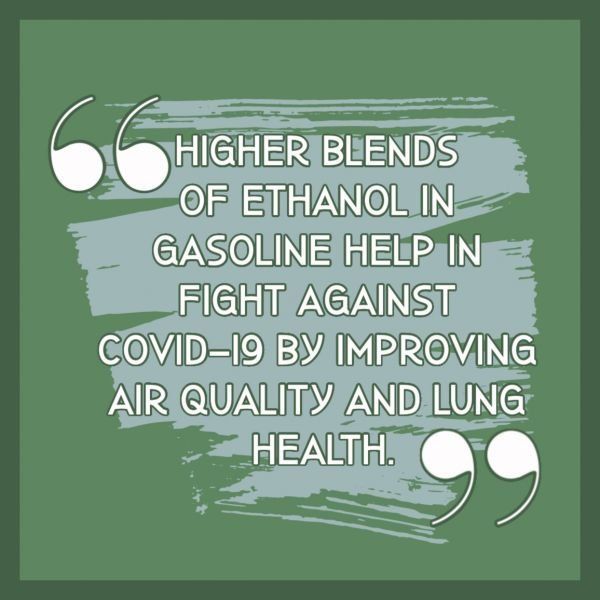Cleaner air is one defense against COVID-19

Researchers see a correlation between high concentrations of particulate matter in the air and vulnerability of citizens contracting the COVID-19 virus, says a recent study by Harvard T.H. Chan School of Public Health. The link was documented by a group of Italian researchers as well and publicized this week by Chicago Area Clean Cities (CACC).
The particulate matter in question is very fine particle size pollutants which the lungs have a hard time filtering. The same particulate matter is a common emission from cars that can be reduced by cleaner burning fuels like ethanol.
According to the article, “Those living in urban areas with large numbers of vehicles and traffic congestion face higher exposure than people living in suburban neighborhoods, or more rural areas.”
CACC also points out a link between the Harvard Study and the work of Dr. Steffen Mueller, PhD, Principal Economist for the Energy Resources Center at University of Illinois at Chicago. He found that increasing the blend of ethanol beyond 10 percent up to 25 percent significantly reduces cancer-causing aromatic emissions and this same type of particulate matter.
“Healthy lungs are our first defense against this virus and other respiratory ailments. Reducing PM 2.5 emissions through alternative fuels, such as higher blends of ethanol, can help lessen our vulnerability. If you cannot breathe, nothing else matters,” CACC says.
Corn farmers have long advocated for higher blends of ethanol, touting its cleaner burning properties and benefits for our environment. Post COVID-19, will America’s urban areas finally be willing to take a second look?







